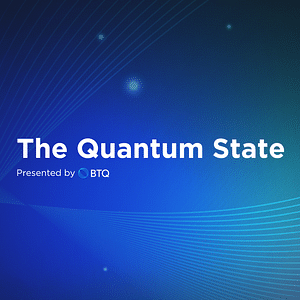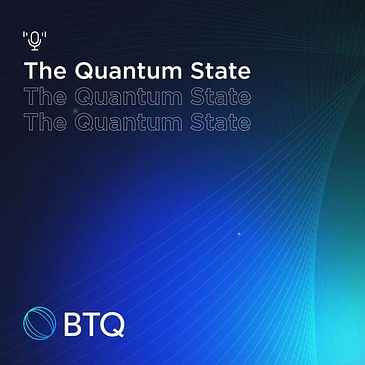In this captivating episode of Quantum State, join host Anastasia Marchenkova alongside co-hosts Peter Rohde and Gavin Brennan, as they dive deep into the quantum realm with a special guest, Chris Tam, Head of Partnerships at BTQ. Uncover the cutting-edge strategies and innovations driving BTQ's mission to secure mission-critical networks against the looming quantum threat.
🔒 BTQ Overview: Delve into BTQ's mission and its strategic positioning at the intersection of quantum technology and digital security. Discover how BTQ addresses high-impact problems and shapes the future of digital assets, Web 3, and CBDCs.
🛡️ BTQ's PQC Solutions: Explore BTQ's robust product suite, including PQScale, QCIM, Keelung, and Kenting, and learn how they are bolstering digital infrastructure against quantum vulnerabilities. Gain insights into the pioneering work behind Preon & NIST Standardization and the significance of BTQ's Open Source project, Keelung.
🌐 Strategic Milestones & Partnerships: Journey through BTQ's significant milestones and its trajectory of growth and innovation in the quantum sector. Understand the profound impact of BTQ's partnership with Hon Hai Research Institute and how it's shaping sophisticated R&D in the quantum space.
💻 Challenges & Breakthroughs: Address the existential quantum threat to current encryption standards and how initiatives like NIST are driving the global quest for quantum-safe solutions. Get an expert take on lattice-based cryptography and its role in combating the tradeoffs in size and speed of PQC algorithms.
🤝 Collaboration & Investment Dynamics: Emphasize the importance of global collaboration and the surge in quantum tech startup investments. Learn about BTQ's approach to assisting businesses in transitioning to quantum-safe standards through specialized services and risk assessments.
🔭 A Glimpse into the Future: Envision how BTQ's innovative solutions are setting the stage for digital security in the quantum age. Discover BTQ's predictions for the evolution of PQC standards and its pivotal role in crafting a quantum-resistant future.
📣 Call to Action: Understand the imperative for businesses to embrace PQC and how BTQ is facilitating this transition. Dream of a world where robust PQC underpins our digital lives seamlessly, courtesy of BTQ's relentless pursuit of quantum-safe solutions.
Don't miss this deep dive into the future of quantum technology and digital security. Like, subscribe, and share to stay at the forefront of the quantum revolution with Quantum State.
#QuantumComputing #PQC #DigitalSecurity #BTQ #QuantumState #QuantumInnovations #PostQuantumCryptography




